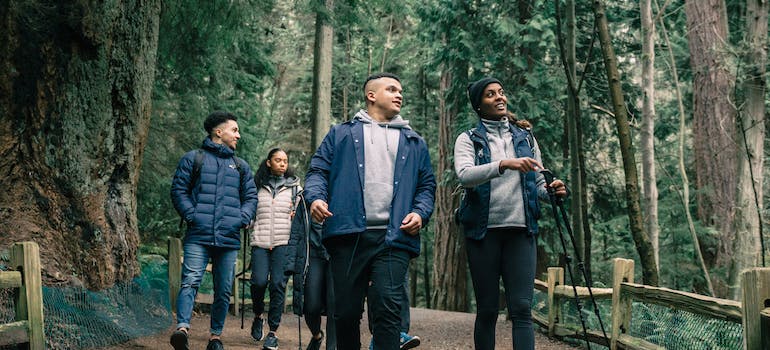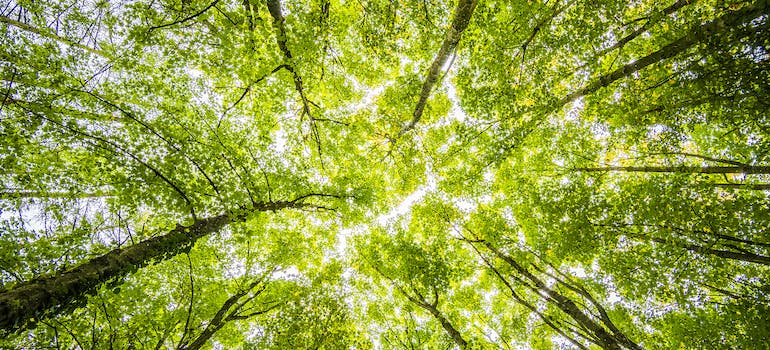Nature is not just a mere backdrop. It is a dynamic force that holds the potential to heal, inspire, and provide solace in the face of challenges in life. Beyond its aesthetic allure, nature embodies a therapeutic power, inviting us to rediscover our profound connection. Harmony Ridge Recovery Center WV will explore the ecotherapy potential in addiction treatment in West Virginia and the profound impact it can have on our well-being.
The Addiction Problem in West Virginia
West Virginia is facing a serious drug problem, with a high number of deaths related to overdose. In 2021 alone, there were 1,516 overdose-related deaths. The opioid epidemic and other substance abuse issues are widespread in the state, causing great harm to individuals, families, and communities. Therefore, taking immediate and comprehensive action to address this crisis is crucial.

Treatment Challenges in West Virginia
The main treatment challenges in West Virginia are:
- Stigma and reluctance
- Standardized methods
- Limited holistic integration
Stigma and Reluctance
The pervasive stigma linked to addiction in West Virginia often originates from societal misconceptions and judgments. Therefore, individuals who grapple with addiction may fear the negative perceptions of family, friends, and their community, leading to a reluctance to acknowledge their struggle. This societal stigma not only impacts an individual’s self-esteem but also serves as a significant barrier, hindering them from seeking timely and appropriate treatment.
The fear of judgment and potential alienation can be paralyzing for individuals navigating addiction. Traditional treatment methods, particularly those involving group therapy or public engagement, can intensify these fears, deterring participation in these interventions. Overcoming the stigma requires a nuanced understanding of the psychological and emotional toll it exacts on those seeking help. It is important to emphasize the alternative, less stigmatizing approaches.
Standardized Methods
Traditional addiction treatment methods often adhere to standardized treatment models that may not consider the diverse needs and backgrounds of individuals. Therefore, West Virginia, marked by cultural and socioeconomic diversity, requires an approach that goes beyond the limitations of one-size-fits-all methods. Tailoring treatment to the unique challenges faced by different communities within the state becomes imperative for achieving effective outcomes.
Consequently, recognizing the diversity within the state is crucial for designing effective addiction treatment strategies. Tailoring treatment involves understanding the cultural, economic, and social factors influencing addiction patterns and recovery prospects in West Virginia. With personalized approaches, treatment programs can become more inclusive and responsive to the specific needs of individuals. That fosters a more effective and culturally sensitive therapeutic environment.
Limited Holistic Integration
Traditional methods often prioritize medical interventions and counseling, neglecting crucial aspects of a person’s life. By predominantly focusing on the biological and psychological dimensions, these approaches may overlook the profound impact of environmental and lifestyle factors on an individual’s well-being. Also, this narrow focus doesn’t allow for a comprehensive understanding of the problem necessary for effective addiction recovery.
Holistic integration acknowledges that recovery extends beyond a mere medical or psychological process; it encompasses one’s environment and lifestyle. Addressing environmental factors such as living conditions, employment, and social support is integral to fostering sustainable recovery. Holistic approaches, including interventions like ecotherapy, recognize the therapeutic potential of nature in promoting mental health and overall well-being. They offer a more comprehensive and nuanced approach to addiction treatment.
Solving the Treatment Challenges with Ecotherapy Potential in Addiction Treatment in West Virginia
In the face of the challenges posed by stigma, reluctance, one-size-fits-all approaches, and limited holistic integration in traditional addiction treatment methods, ecotherapy appears as a promising solution in West Virginia. This nature-based therapeutic approach, implemented by reputable residential treatment centers in West Virginia, addresses these challenges through its unique principles and practices.

What Is Ecotherapy?
Before we explore the ecotherapy potential in addiction treatment in West Virginia, we need to understand what ecotherapy is. Ecotherapy, also known as nature therapy or green therapy, is a therapeutic approach that recognizes the healing potential of the natural environment in promoting mental and emotional well-being. It involves structured outdoor activities and interventions. The aim is to enhance the connection between individuals and the natural world and support psychological health.
Core Principles of Ecotherapy
The main principles of ecotherapy are:
- Biophilia: It acknowledges the inherent human tendency to seek connections with nature. Also, ecotherapy leverages this innate affinity to promote healing and balance.
- Holistic Well-Being: It views individuals as part of a larger ecosystem, considering the interconnection between personal, social, and environmental health. Furthermore, it emphasizes the holistic nature of well-being, addressing mental, emotional, and physical aspects.
- Mindfulness and Presence: It encourages participants to be fully present in the natural environment. Moreover, mindfulness practices enhance self-awareness and promote a sense of calm and grounding.
- Stress Reduction: Nature has been shown to reduce stress and anxiety. What’s more, ecotherapy activities aim to provide a respite from the demands of everyday life, offering a therapeutic escape.
- Self-Reflection and Insight: It utilizes the reflective qualities of nature to facilitate self-discovery. Nature serves as a metaphor for personal growth, allowing individuals to gain insights into their own challenges and strengths.
- Empowerment: It fosters a sense of empowerment by engaging participants in activities that promote self-efficacy. Individuals develop confidence through their interactions with the natural world.
How Will Ecotherapy Help You?
There are many ways ecotherapy can help solve the challenges of addiction treatment in WV. Let’s explore the main ones:
- Reducing stigma by connecting to nature
- Individualized and culturally relevant intervention
- Holistic healing in the natural environment
- Community building and support
- Empowerment and personal growth
- Accessible and inclusive natural settings

Reducing Stigma by Connecting to Nature
Ecotherapy is a promising solution to the pervasive stigma associated with addiction in West Virginia. Nature-based therapeutic interventions provide a unique, non-judgmental environment where individuals can heal without fearing societal scrutiny. The natural world becomes a supportive companion, fostering a sense of acceptance and belonging. This reduces the stigma that often prevents individuals from seeking traditional treatment.
Individualized and Culturally Relevant Interventions
Unlike traditional methods that may employ standardized approaches, ecotherapy allows for highly individualized interventions. By tailoring nature-based activities to resonate with the diverse cultural and personal backgrounds of West Virginians, ecotherapy ensures that treatment speaks directly to the unique challenges faced by individuals in the state. This personalized approach enhances the relevance and effectiveness of rehab for professionals in WV or retired people, young adults or seniors, making them more accessible and relatable to a broader range of individuals.
Holistic Healing in Natural Environments
Ecotherapy intentionally addresses the limitations of traditional methods by integrating holistic healing in natural environments. Recognizing that recovery extends beyond the biological and psychological dimensions, ecotherapy incorporates environmental and lifestyle factors into the healing process. Activities such as nature walks, gardening, and outdoor mindfulness sessions engage participants holistically, fostering comprehensive and sustainable recovery that considers the broader context of an individual’s life.
Community Building and Support
Ecotherapy, often involving group activities in natural settings, catalyzes community building and support. This is especially beneficial for people who struggle with trauma and PTSD. The shared experience of connecting with nature creates a supportive network among participants, breaking down social barriers and reducing the fear of alienation that people might feel in more traditional group settings. The therapeutic community formed in nature contributes to a sense of belonging and shared purpose for people at veterans alcohol rehab centers, which are the essential elements in the recovery process.

Empowerment and Personal Growth
Engaging with the natural environment in ecotherapy empowers individuals in their recovery journey. Nature serves as a metaphor for personal growth, allowing individuals to draw strength from their interactions with the environment and translate it into resilience in overcoming addiction. Hence, the sense of accomplishment and control over their recovery path enhances self-efficacy. Moreover, it contributes to a positive and empowering treatment experience.
Accessible and Inclusive Nature Settings
West Virginia has abundant natural resources, making ecotherapy an accessible and inclusive option across different regions. Overcoming the challenges of limited treatment center accessibility in rural areas, ecotherapy leverages the state’s scenic landscapes to ensure that individuals from various backgrounds can benefit from its therapeutic potential. Hence, utilizing the ecotherapy potential in addiction treatment in West Virginia brings about a widely accessible solution that transcends geographical and cultural boundaries, making it an inclusive option for addiction treatment.
The Connection Between Nature and Mental Health
Ecotherapy recognizes the profound impact of nature on mental health, supported by research indicating the following connections:
- Stress reduction and cortisol levels: Time spent in nature has been linked to reduced cortisol levels, a stress marker.
- Improved mood and well-being: Ecotherapy activities enhance emotional resilience and foster positive mental states.
- Enhanced attention and focus: Nature exposure has been linked to improved attention and concentration.
- Social connection and community: Shared outdoor experiences contribute to developing social bonds and support networks.
Natural Resources for Ecotherapy Potential in Addiction Treatment in West Virginia
West Virginia provides an ideal backdrop for ecotherapy interventions. From the majestic peaks of the Appalachian Mountains to the serene valleys and winding rivers, the state’s scenery is a source of inspiration for those seeking healing through nature. Let’s explore places that offer the ecotherapy potential in addiction treatment in West Virginia:
- Parkesburg
- Fairmont
- Clarksburg
- Morgantown

Parkersburg
Parkersburg, located along the Ohio River, offers us Blennerhassett Island State Park. The island, accessible by boat, offers tranquil gardens and wooded areas, creating a serene environment for nature-based activities. The Blennerhassett Island also provides a historical backdrop, adding depth to the ecotherapy potential in addiction treatment in West Virginia. The proximity of rehabs in Parkersburg WV to local treatment centers ensures that individuals undergoing addiction recovery can readily access this natural setting for therapeutic interventions.
Fairmont
The Prickett’s Fort State Park in Fairmont provides a picturesque setting for ecotherapy during addiction treatment in West Virginia. With its reconstructed 18th-century fort and surrounding wilderness, participants can immerse themselves in nature while engaging in therapeutic activities. Local treatment centers leverage the accessibility of the park to integrate ecotherapy into their addiction recovery programs, offering a holistic approach to healing for people who take part in rehab Fairmont WV residents trust.
Clarksburg
Coopers Rock State Forest, located near Clarksburg, is ideal for ecotherapy. The forest features rugged terrain, rock formations, and the iconic overlook, providing breathtaking views of the Cheat River Gorge. Combining dense woodlands and scenic views creates an immersive experience for participants seeking solace in nature. The proximity of Coopers Rock State Forest to the rehab center Clarksburg WV residents praise facilitates integration, allowing individuals to benefit from ecotherapy potential in addiction treatment in West Virginia.
Morgantown
Morgantown is home to the scenic Cheat Lake, surrounded by lush greenery and hiking trails. Places like Dorsey’s Knob Park offer panoramic views of the lake and the Monongahela River, creating an idyllic setting for ecotherapy in addiction treatment in West Virginia. The calming waters and verdant landscapes contribute to the therapeutic ambiance. Rehab centers in Morgantown WV incorporate these natural settings into their programs. This enables people undergoing addiction treatment to experience the healing potential of the outdoors as an integral part of their recovery process.

Explore the Healing Power of Nature
Nature can be a powerful resource in helping people overcome addiction and mental health issues. By embracing the ecotherapy potential in addiction treatment in West Virginia, we can create a safe and effective environment for healing. West Virginia has beautiful natural resources that are more than just scenery; they are essential to the journey toward holistic well-being. Therefore, incorporating nature into addiction treatment is not just a suggestion but an invitation to utilize a powerful ally in the recovery process. Recognizing the healing potential of nature can help us harmonize our spirits with the rhythms of the natural world and cultivate resilience, empowerment, and long-term recovery.



